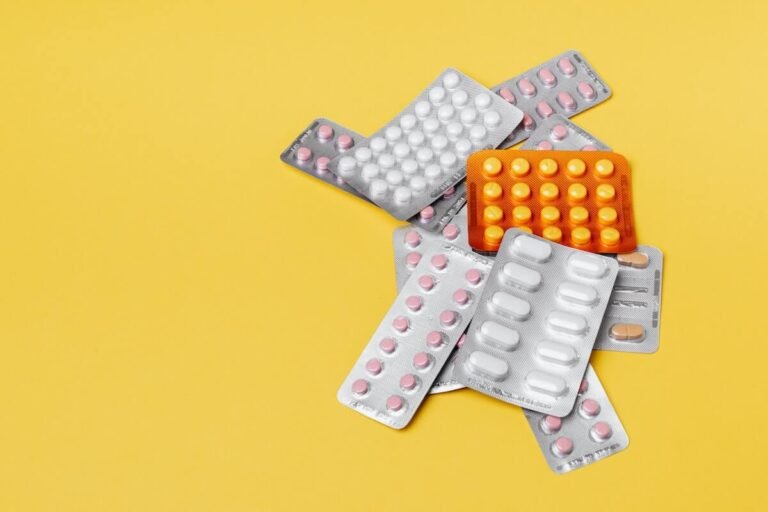How Can I Prevent Constipation From Opioids For Pain Management?
How Can I Prevent Constipation From Opioids For Pain Management?
Constipation can be an unpleasant side effect of using opioid oral analgesics for pain management. But fear not, because there are simple steps you can take to prevent this discomfort.
By making a few adjustments to your daily routine and incorporating certain practices into your lifestyle, you can minimize the chances of constipation occurring as a result of opioid medications. So, if you’re looking for effective ways to keep constipation at bay while managing your pain, read on for some helpful tips and tricks.
Understanding Constipation and Opioid Oral Analgesics
What is constipation?
Constipation is a common digestive issue characterized by infrequent bowel movements or difficulty passing stool. When you experience constipation, you may have hard, dry, or lumpy stools that are difficult to pass. It can cause discomfort, bloating, and a sense of incomplete evacuation. One of the factors that contribute to constipation is the use of opioid oral analgesics for pain management.
What are opioid oral analgesics?
Opioid oral analgesics are medications often prescribed for managing moderate to severe pain. These medications, which include drugs like codeine, oxycodone, and morphine, are highly effective in relieving pain but can unfortunately cause constipation as a side effect.
How do opioid oral analgesics cause constipation?
Opioid oral analgesics slow down your gastrointestinal tract, affecting its ability to push waste through and causing constipation. These medications bind to receptors in the gut, reducing the movement of the muscles that propel stool. As a result, your bowel movements become less frequent, leading to constipation.
Prevention Strategies
Increase fiber intake
One of the most effective ways to prevent constipation caused by opioid oral analgesics is to increase your fiber intake. Fiber adds bulk to your stool and promotes regular bowel movements. Include foods rich in insoluble fiber, such as whole grains, bran, and vegetables, as well as soluble fiber, found in fruits, beans, and lentils, in your diet.
Stay hydrated
Drinking enough water is crucial in preventing constipation. It softens the stool and makes it easier to pass. Aim to drink at least eight glasses of water per day, and consider carrying a water bottle with you to stay hydrated throughout the day.
Exercise regularly
Regular physical activity helps to stimulate the muscles in your intestines, promoting bowel movement. Engage in aerobic exercises like walking, jogging, or swimming. Additionally, consider incorporating abdominal exercises, such as crunches or yoga poses, to specifically target the muscles in your abdominal area.
Take stool softeners or fiber supplements
Stool softeners and fiber supplements can be useful in preventing and relieving constipation. Stool softeners, like docusate sodium, help soften the stool, making it easier to pass. Fiber supplements, such as psyllium husk, can increase your daily fiber intake and promote regular bowel movements. However, always consult with a healthcare professional before taking any new medications or supplements.
Use laxatives sparingly
Laxatives should be used sparingly and only as a last resort when other prevention strategies haven’t been effective. Laxatives can provide temporary relief, but relying on them too heavily can lead to dependence and worsen constipation. If you do choose to use laxatives, opt for bulk-forming laxatives or osmotic laxatives under the guidance of a healthcare professional.
Try non-pharmaceutical remedies
In addition to the above strategies, there are non-pharmaceutical remedies you can try to relieve constipation. Natural laxatives like prunes or prune juice can have a gentle laxative effect. External stimulation techniques, such as abdominal massage or use of a warm compress on the abdomen, can help stimulate bowel movements. Explore these remedies to find what works best for you.
Dietary Recommendations
Choose high-fiber foods
Including high-fiber foods in your diet is key to preventing constipation. Opt for whole grains, such as whole wheat bread and brown rice, as well as foods like oatmeal and bran cereal. These foods provide a good amount of insoluble fiber to help promote regular bowel movements.
Include fruits and vegetables
Fruits and vegetables are rich in both soluble and insoluble fiber, making them essential for a healthy digestive system. Apples, berries, oranges, broccoli, and spinach are excellent choices. Aim to include a variety of fruits and vegetables in your daily meals to maximize your fiber intake.
Opt for whole grains
When choosing bread, cereal, or pasta, opt for whole grain varieties over refined grains. Whole grains retain their bran and germ, which are rich in fiber, compared to refined grains that undergo processing. Look for labels that specifically state “whole grain” or “100% whole wheat” to ensure you’re getting the maximum fiber content.
Consume legumes and beans
Legumes and beans, such as lentils, chickpeas, and black beans, are packed with fiber and can help prevent constipation. Consider incorporating them into your meals, whether in soups, salads, or as a side dish. They not only provide fiber but also offer protein and other essential nutrients.
Hydration Importance
Drink enough water
Staying hydrated is crucial for preventing constipation. Water helps keep your stool soft and easy to pass. Aim to drink at least eight glasses of water per day, but adjust your intake based on your activity level and individual needs. Remember that other fluids, like herbal tea or diluted fruit juice, also contribute to your daily hydration.
Limit caffeine and alcohol
Caffeine and alcohol can have a dehydrating effect, making constipation more likely. Limit your intake of caffeinated beverages, such as coffee or energy drinks, as well as alcoholic beverages. If you do consume them, be sure to drink extra water to compensate for the dehydrating effects.
Exercise and Physical Activity
Engage in regular aerobic exercise
Regular aerobic exercise, such as walking, jogging, or swimming, can help promote bowel regularity. These activities stimulate the muscles in your intestines, aiding in the movement of waste through your digestive system. Aim for at least 30 minutes of moderate-intensity aerobic exercise most days of the week.
Incorporate abdominal exercises
In addition to aerobic exercise, incorporating abdominal exercises can specifically target the muscles in your abdominal area, aiding in bowel movements. Exercises like crunches, planks, or yoga poses like the “wind-relieving pose” can help strengthen and stimulate these muscles. Consult with a fitness professional or healthcare provider for guidance on proper technique and the best exercises for you.
Stool Softeners and Fiber Supplements
Consider stool softeners
If you are struggling with constipation while taking opioid oral analgesics, consider using stool softeners under the guidance of a healthcare professional. Stool softeners help to moisten and soften the stool, making it easier to pass. They work by increasing the amount of water absorbed into the stool, providing relief without the potential dependence associated with laxatives.
Explore fiber supplements
Fiber supplements can be a helpful addition to your prevention strategies. Psyllium husk, for example, is a commonly used fiber supplement that can increase your daily fiber intake and bulk up your stool. However, always consult with a healthcare professional before starting any new supplements, as they can interact with medications or have individual contraindications.
Laxatives: Use with Caution
Understand the types of laxatives
Laxatives come in various forms and work differently to relieve constipation. Bulk-forming laxatives, osmotic laxatives, stimulant laxatives, stool softeners, and lubricant laxatives are some common types. It’s important to understand their mechanisms and potential side effects before using them. Always consult with a healthcare professional to determine which laxative, if any, may be appropriate for your specific situation.
Consult a healthcare professional before use
Before resorting to laxatives, it’s essential to consult with a healthcare professional, such as a doctor or pharmacist, to discuss your symptoms and potential treatment options. They can provide personalized advice and guide you on the appropriate use of laxatives, ensuring your overall health and digestive well-being.
Non-pharmaceutical Remedies
Try natural laxatives
In addition to traditional medications, there are natural laxatives that can offer relief from constipation. One of the most well-known natural laxatives is prunes or prune juice. These contain sorbitol, which acts as a natural stool softener. Incorporate prunes or prune juice into your diet gradually to avoid any sudden changes in bowel habits.
Apply external stimulation techniques
External stimulation techniques can help stimulate bowel movements and relieve constipation. Gentle abdominal massage in a clockwise direction can promote movement in your colon. Another technique involves using a warm compress on your abdomen to relax the muscles and encourage regular bowel movements. Experiment with these techniques and find what works best for you.
Lifestyle and Other Considerations
Establish a regular bathroom routine
Establishing a regular bathroom routine can train your body to expect and respond to the urge to have a bowel movement. Try to schedule regular times for using the bathroom, preferably after meals or when you feel the urge. Creating a consistent routine can help regulate your digestive system and reduce the likelihood of constipation.
Avoid delaying or ignoring the urge to have a bowel movement
When you feel the urge to have a bowel movement, it’s important to listen to your body and respond promptly. Delaying or ignoring the urge can lead to stool hardening and increased difficulty in passing it. Make it a priority to respond to your body’s signals and visit the bathroom when needed.
Manage stress levels
Stress can have a significant impact on your digestive system and contribute to constipation. Practice stress management techniques like deep breathing, meditation, or engaging in activities that help you relax. Finding healthy ways to cope with stress can improve your overall well-being, including your digestive health.
Consider alternative pain management options
If you’re experiencing significant constipation as a result of opioid oral analgesics, it may be worth discussing alternative pain management options with your healthcare professional. They can help evaluate whether there are alternative medications or therapies that can effectively manage your pain with fewer side effects on bowel function.
Consulting a Healthcare Professional
Seek advice from a medical professional
If you’re struggling with constipation while taking opioid oral analgesics, it’s crucial to seek advice from a medical professional. They can evaluate your symptoms, medication regimen, and overall health to provide personalized recommendations. Don’t hesitate to reach out to your doctor or pharmacist for assistance.
Discuss possible alternatives or adjustments to medication
During your consultation with a healthcare professional, discuss the possibility of alternative pain management options or adjustments to your medication regimen. They can help evaluate whether modifying your analgesic medication or combining it with other strategies may minimize the impact on your bowel function. Collaborate with your healthcare team to find the best solution for managing your pain while addressing constipation concerns.
By following these strategies and recommendations, you can take proactive steps to prevent constipation caused by opioid oral analgesics. Prioritize your digestive health and work closely with your healthcare professional to find the best approach that suits your individual needs. Remember, your well-being is important, and there are solutions available to help manage both pain and constipation effectively.





